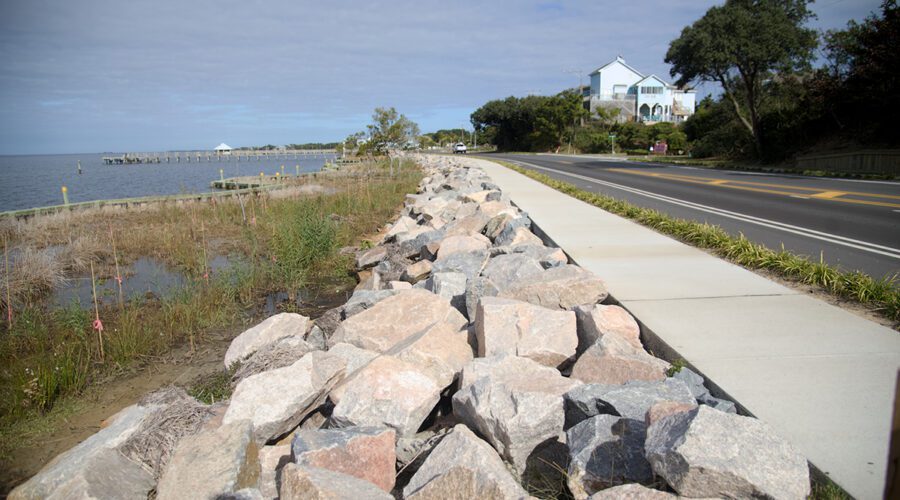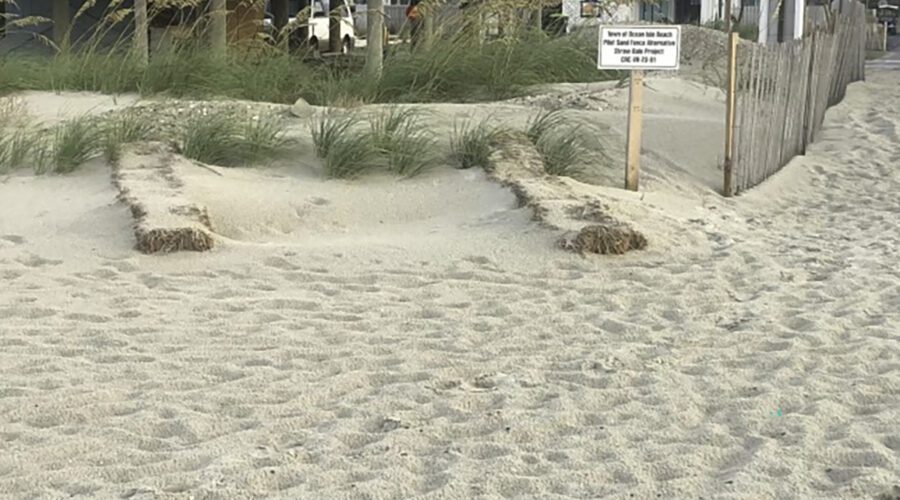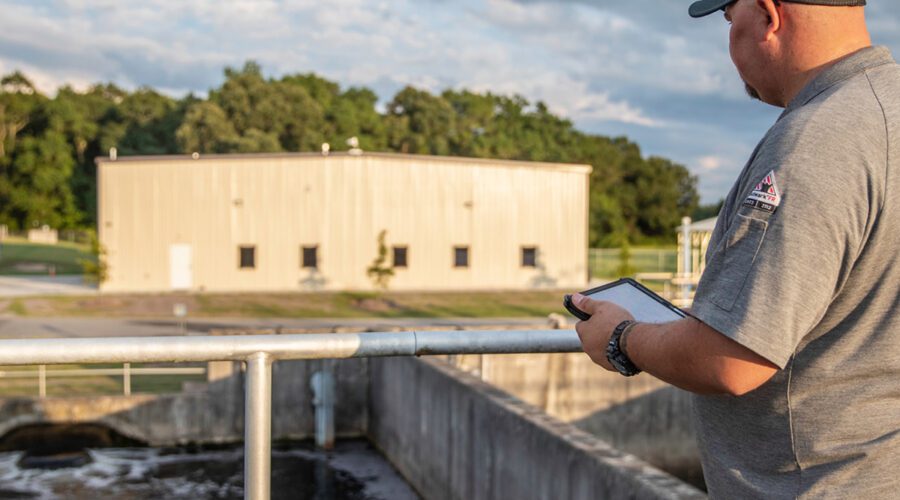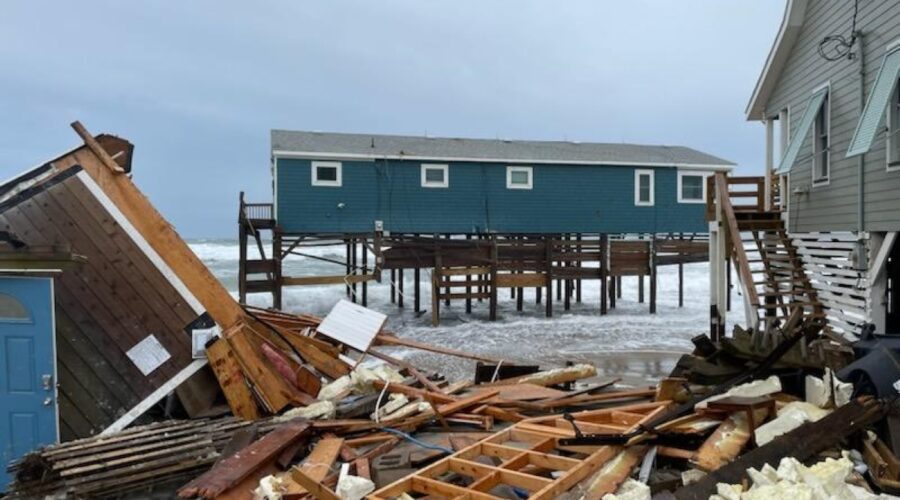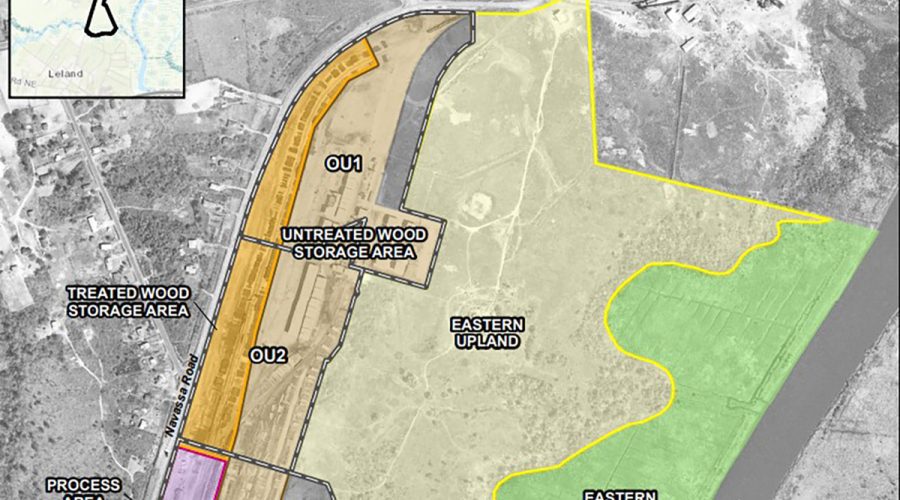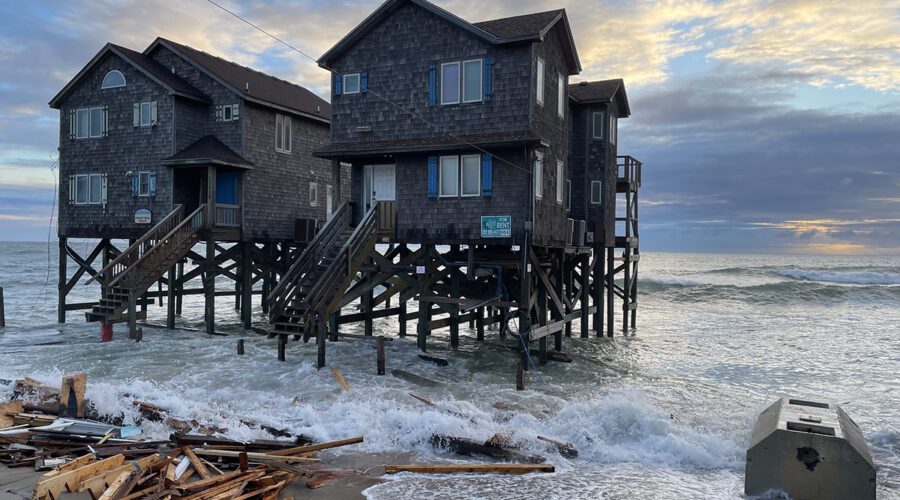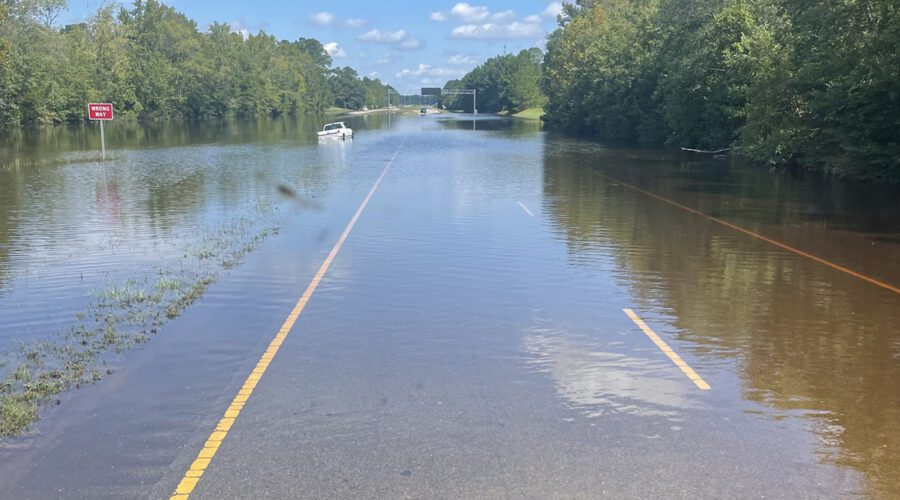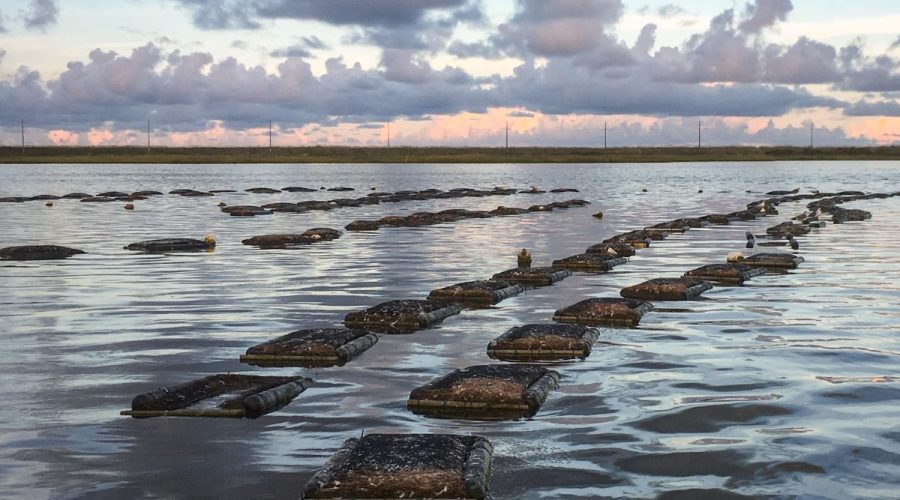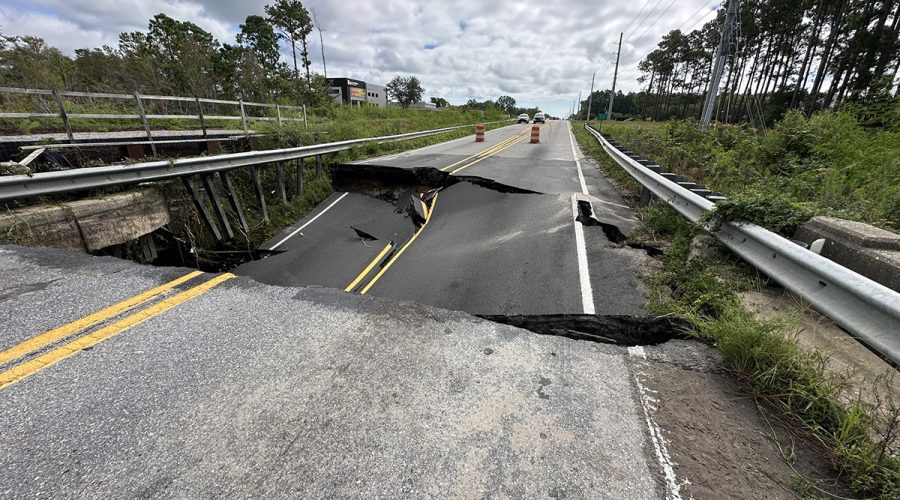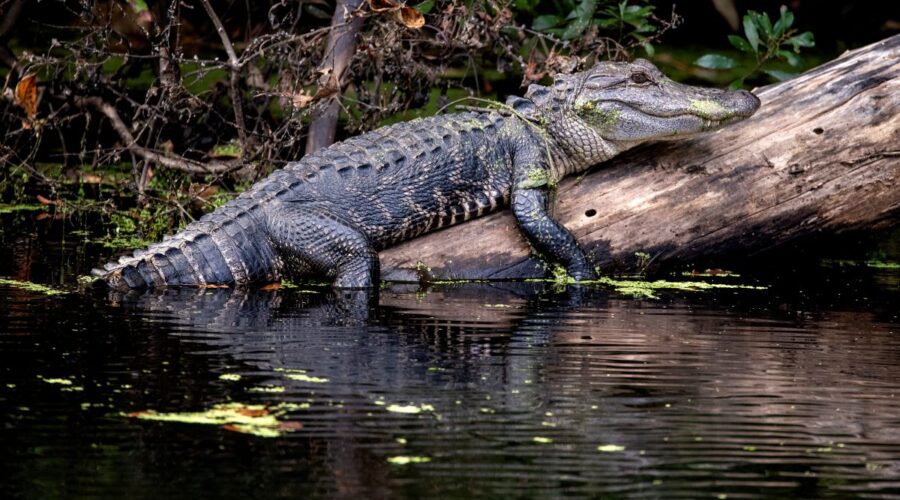Public outrage greeted the state Environmental Management Commission Monday in Wilmington for its latency in adopting per- and polyfluoroalkyl substance health standards, for including only three compounds in the proposed standards, and for appeasing the industries that make the chemicals.
News & Features
Planning association awards Duck for its shoreline project
Duck, in Dare County, recently received national recognition for its work incorporating sustainability and resilience principles in flood prevention, habitat restoration and N.C. Highway 12 improvements along Currituck Sound.
Wildlife officials push back on straw bales for sand fencing
Wildlife Resources Commission officials are calling for thorough research on how wheat straw bales might affect oceanfront habitat before the state allows them to be used as an alternative to sand fencing.
Waste discharge agreement moves toward becoming rule
The Environmental Management Commission has advanced proposed changes that would codify an existing, long-term agreement with an association of wastewater dischargers into the Tar-Pamlico River Basin.
Superintendent’s warning to coastal commission rings true
Cape Hatteras National Seashore Superintendent Dave Hallac had told the Coastal Resources Commission last week that Rodanthe homes were apt to fall this weekend. It took fewer than 48 hours for the first to collapse.
Topsail Island towns team to eradicate harmful beach vitex
Topsail Island towns are banding together in an attempt to reduce the presence of the invasive plant that chokes out native vegetation on oceanfront dunes.
Buxton folk relieved at Corps action, ask why not sooner?
Corps of Engineers officials told Hatteras Island residents this week that work is ongoing and a formal advisory board on cleanup at the petroleum-contaminated National Park Service beach could help information flow, but some here wonder, why did it take so long?
Report uses new tools to address Wright Monument leakage
The recently released “Wright Brothers Monument and Powerhouse Historic Structure Report,” employs advanced tools to diagnose the interior of the monument’s stubborn excessive moisture and water intrusion.
Rules eased as red-cockaded woodpeckers’ status improves
Wildlife officials say the recent downlisting from endangered to threatened is a success story, but opponents say the U.S. Fish and Wildlife Service’s reclassification is premature.
Officials are in ‘No hurry to sell’ 87 acres of Navassa site
Residents in the Brunswick County town have been speaking out against using for warehousing the 87 acres that went out for bid a year ago at the former wood treatment site.
Science panel applies 2022 sea level report projections to NC
The Coastal Resources Commission’s science panel has released its “North Carolina 2024 Sea Level Rise Science Update” that applies the findings of a 2022 federal-level sea level rise technical report to North Carolina.
Brunswick County to explore creating a stormwater utility
A month after an unnamed storm dumped more than a dozen inches of rain and caused flooding in much of the southeastern part of the state, Brunswick County commissioners are looking to better balance stormwater management and development.
State sets temporary allowable PFAS limits in groundwater
The North Carolina Division of Water Resources released interim maximum allowable concentrations to help define cleanup targets for groundwater contaminated with high levels of the chemical compounds.
Pender, Onslow towns seek moratorium on shellfish leases
North Topsail Beach, Surf City, and Topsail Beach and their counties, Onslow and Pender, are asking state lawmakers to put in place a moratorium on new shellfish leases in their waterways.
Brunswick County faces ‘undue burden’ amid funding shift
As western North Carolina grapples with unprecedented immediate needs after Helene, Brunswick County here on the coast is pleading for assistance to cover both its current and long-term storm recovery costs.
Gators’ more frequent appearances make splash along coast
Whether they’re country alligators or city alligators, wildlife biologists say the reptiles just want to be left alone, but the loss of habitat means interactions are more and more likely.


